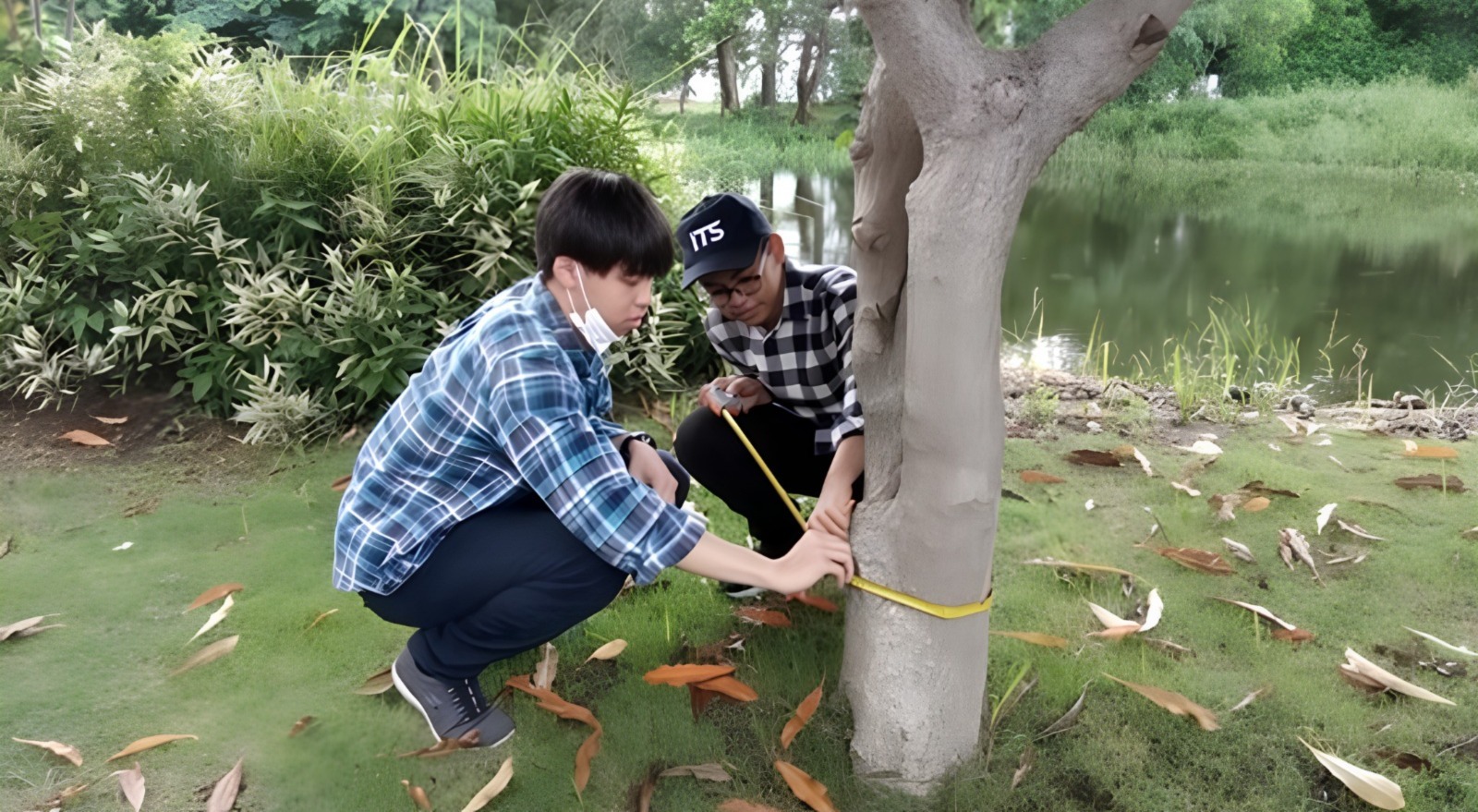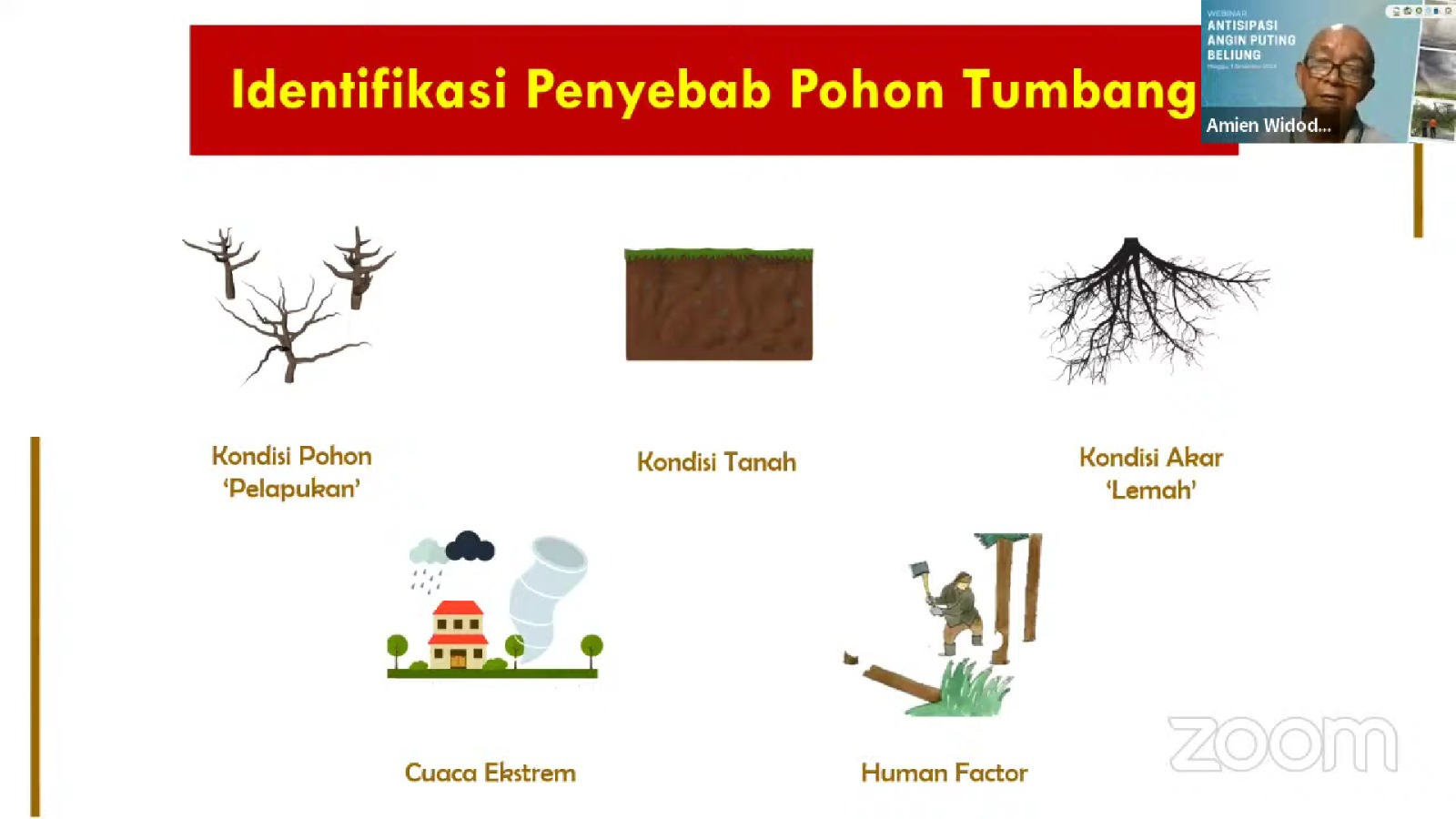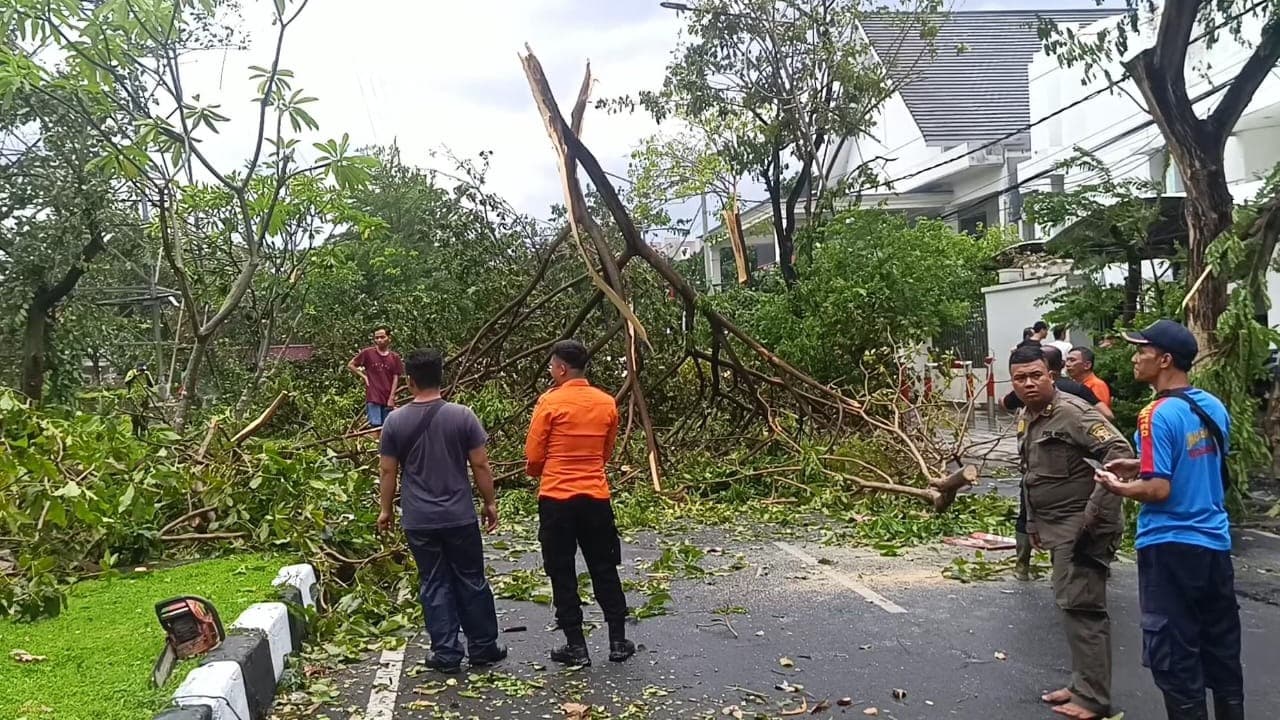ITS Expert Calls for Mitigating Tornado Impact Alertness

Students of the Department of Geophysical Engineering ITS, while observing tree conditions to minimize the impact of tornadoes
ITS Campus, ITS News — As we enter the rainy season, several regions in Indonesia have been experiencing severe tornadoes that have a significant impact. Seeing this phenomenon, disaster mitigation experts from Institut Teknologi Sepuluh Nopember (ITS) highlighted the importance of infrastructure checks and all parties so that people are always ready to face unexpected conditions.
A senior researcher from the ITS Disaster Mitigation and Climate Change (in Indonesian: Pusat Penelitian Mitigasi Kebencanaan dan Perubahan Iklim, further abbreviated and referred to as Puslit MKPI), Dr Ir Amien Widodo MSi, said that global climate change triggers extreme weather. One of them is tornadoes, which are increasing in frequency, wind strength, speed, and the range of affected areas. “This phenomenon is associated with cumulonimbus clouds, which produce rotating winds with high speeds for less than five minutes,” he explained.
Often, damage to houses or trees is attributed to the tornado. In fact, according to Amien, internal factors affect the durability of the structure. For example, porous trees, those with fibrous roots, or those that are old will be more prone to collapse. Similarly, houses with unstable roof structures will be more easily affected. Therefore, the public is encouraged to regularly check the condition of houses, trees, and other infrastructure.
The man born in Yogyakarta urged the public to pay more attention to potentially dangerous infrastructure and vegetation. The most straightforward step is to ensure the house’s roof is installed correctly and vigorously. The surrounding environment also needs to be monitored, such as the condition of trees and not installing heavy objects in the tree area.

Dr Ir Amien Widodo MSi (top right frame) while explaining the causes of fallen trees in a webinar titled Anticipating Tornadoes
The Geology scientist also explained that ITS has taken proactive steps to help mitigate the impact of tornadoes. One is through a webinar entitled Anticipation of Tornadoes, which was held last Sunday (1/12). In this webinar, in collaboration with the Meteorological, Climatological, and Geophysical Agency (BMKG), Amien emphasized that people should be prepared to face this phenomenon. Furthermore, Amien also had time to insert practice in one of the ITS Geophysical Engineering Department courses to analyze the condition of trees in urban parks in Surabaya.
Furthermore, Amien emphasized that the triple helix approach involving the government, academics, and the community also supports the success of monitoring environmental conditions. The public can immediately report if they see unhealthy and inappropriate tree conditions. The local government, especially the Environmental Agency (in Indonesian: Dinas Lingkungan Hidup, further abbreviated and referred to as DLH), plays a vital role in executing the replacement of unhealthy trees. “The role of academics focuses on mapping risk tree assessment in several locations,” Amien explained.

Falling trees during extreme weather due to the neglect of tree condition analysis mapping
In support of technological innovation and awareness in disaster response, ITS is also developing tools to scan tree health. “In the future, a tool to detect cambium emptiness that has the potential to make trees vulnerable to collapse will be used,” explained the ITS Geophysical Engineering Department lecturer.
Finally, Amien reminded the public to remain introspective and that it is better to take shelter at home when heavy rain is accompanied by lightning. “The cooperation and collective awareness of all parties can minimize the impact of tornadoes, and public safety can be better guaranteed,” he said. (ITS Public Relations)
Reporter: Silvita Pramadani
Translator: Lael Soebakir
Related News
-
ITS Lecturer Introduces Madurese Culture to the International Stage
ITS Campus, ITS News — Continuing to show local wisdom to the world community, this time a lecturer from the Department
December 10, 2024 00:12 -
ITS Researchers Remind TKDN is Crucial for Economic Independence
ITS Campus, ITS News — The Domestic Component Level (TKDN) is the key to restoring the glory of the Indonesian
December 10, 2024 00:12 -
Strengthening Quality Education, ITS Professor Develops Adaptive Technology for Students
ITS Campus, ITS News — Differences in students’ abilities in understanding lessons are often a challenge for teachers in the classroom.
December 10, 2024 00:12 -
ITS Graduates Create Reverse Logistics Model for PET Plastic Waste Recycling
ITS Campus, ITS News — Doctoral graduate from the Department of Industrial and Systems Engineering, Sepuluh Nopember Institute of Technology (ITS) Dr. Yuniar
December 10, 2024 00:12
